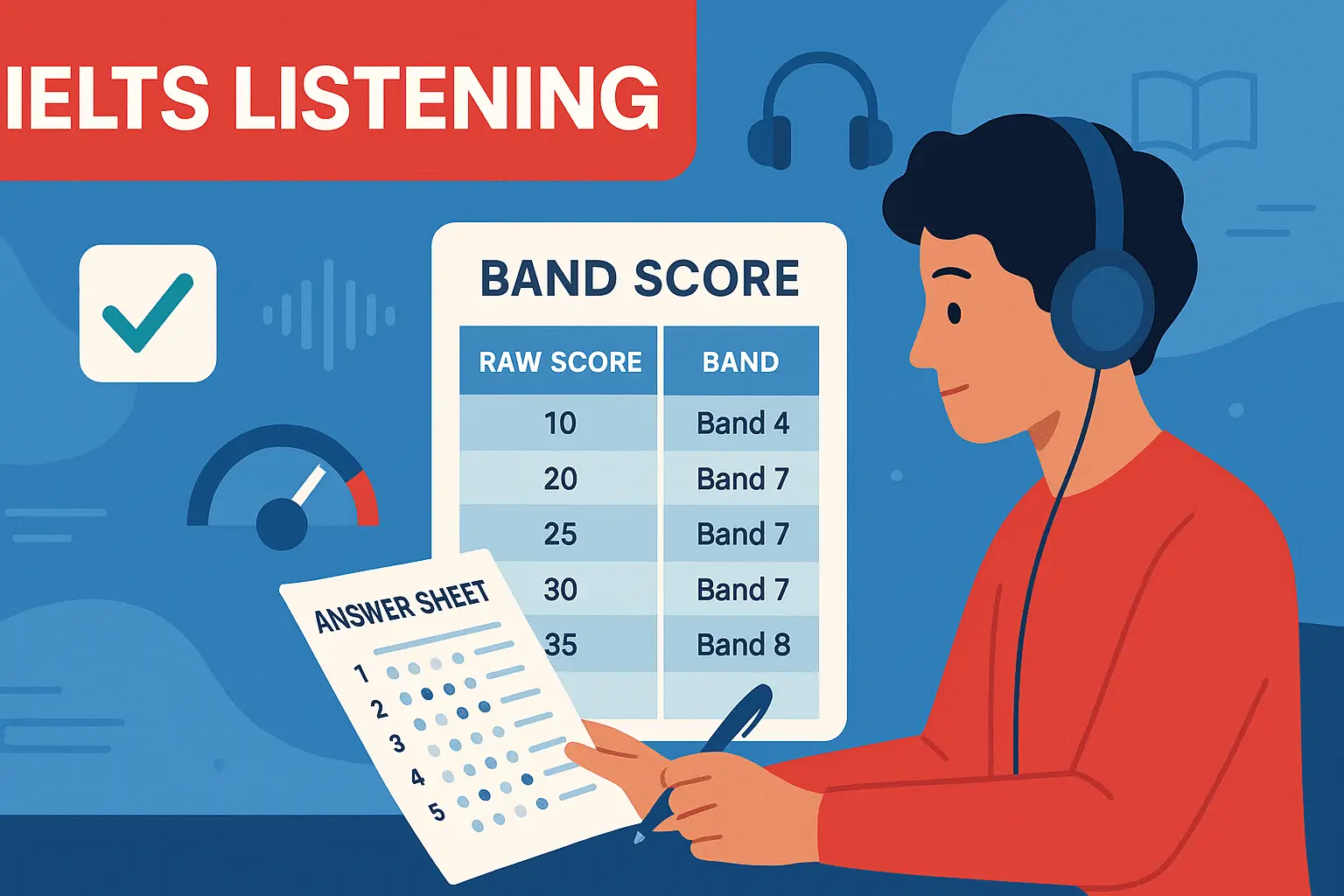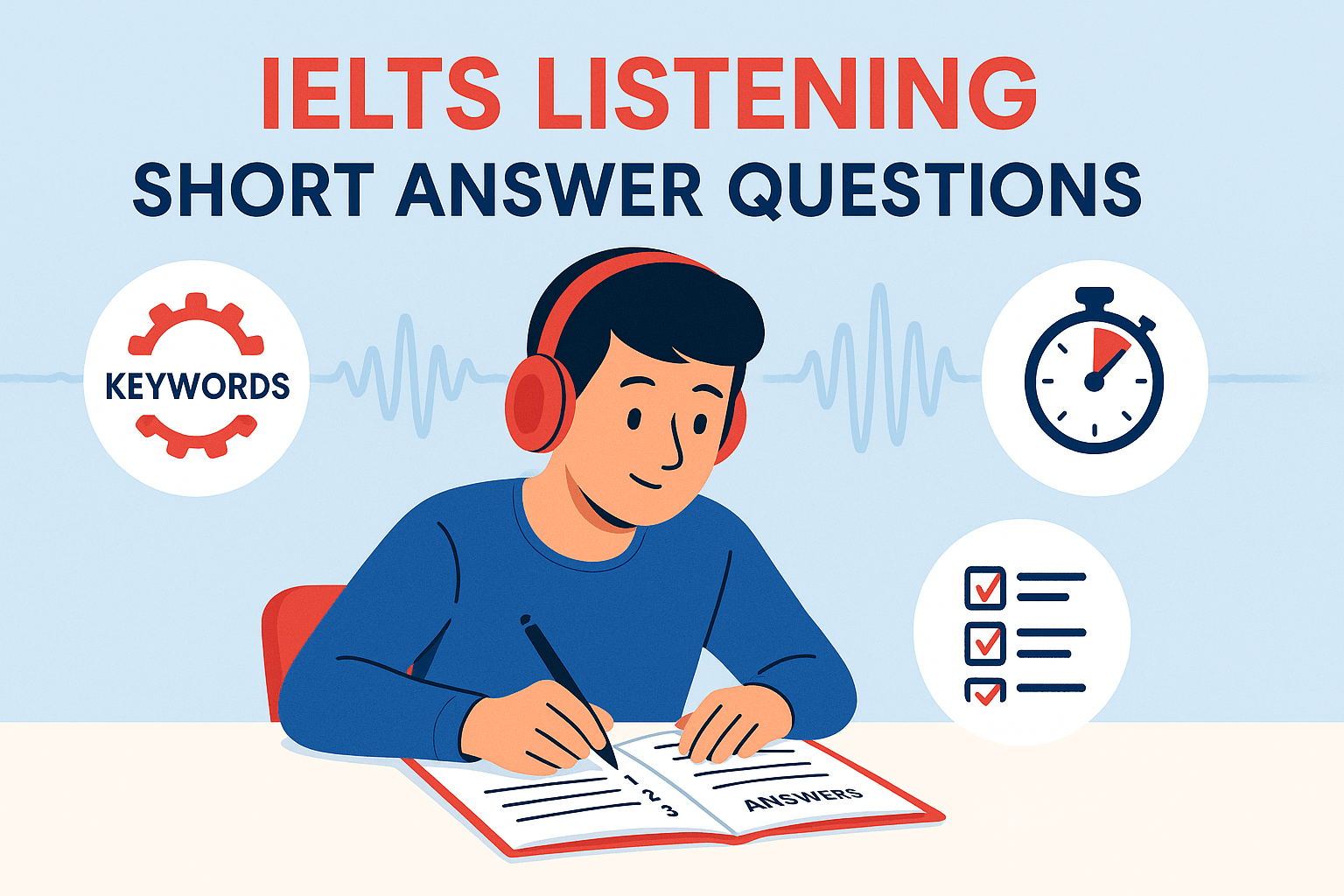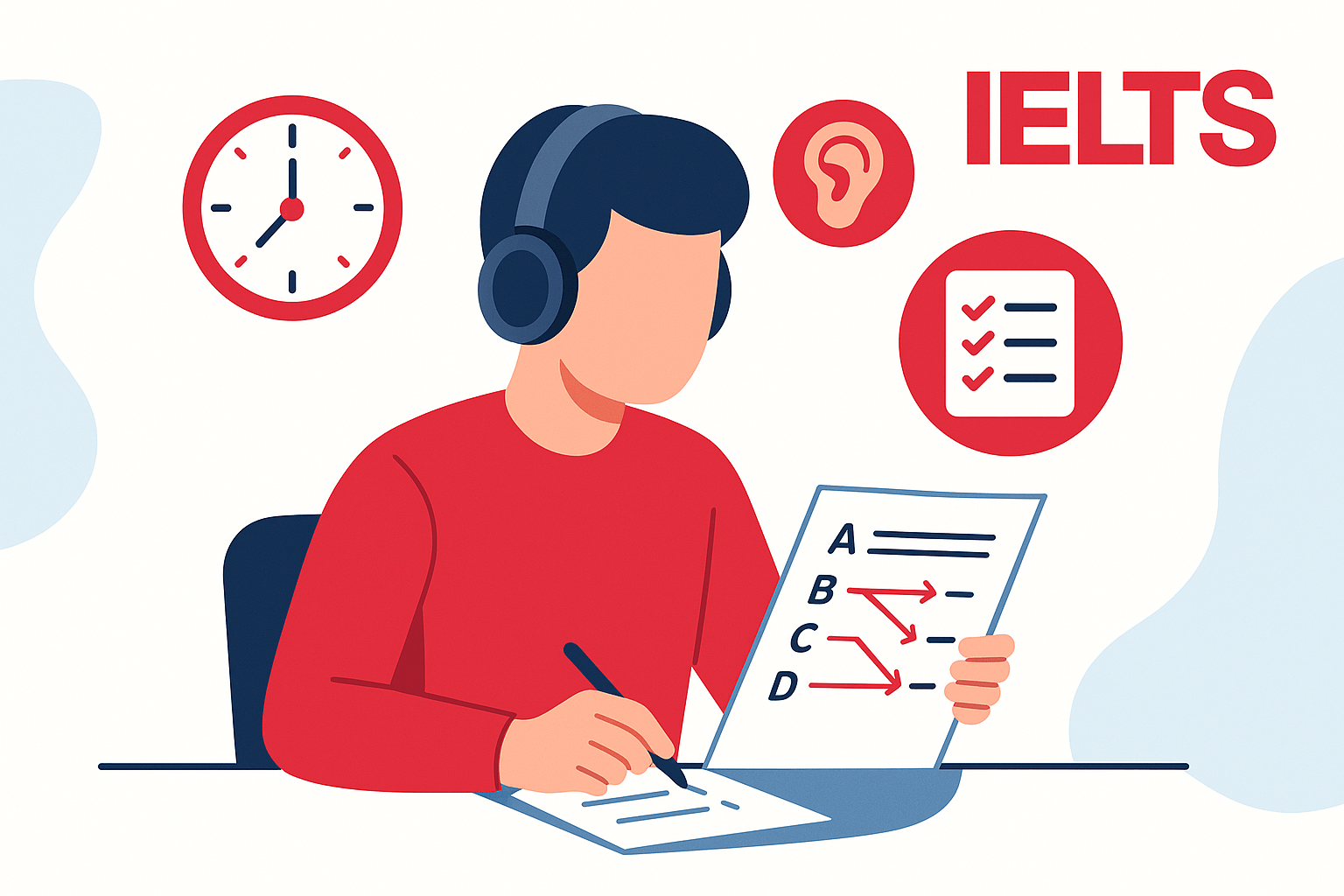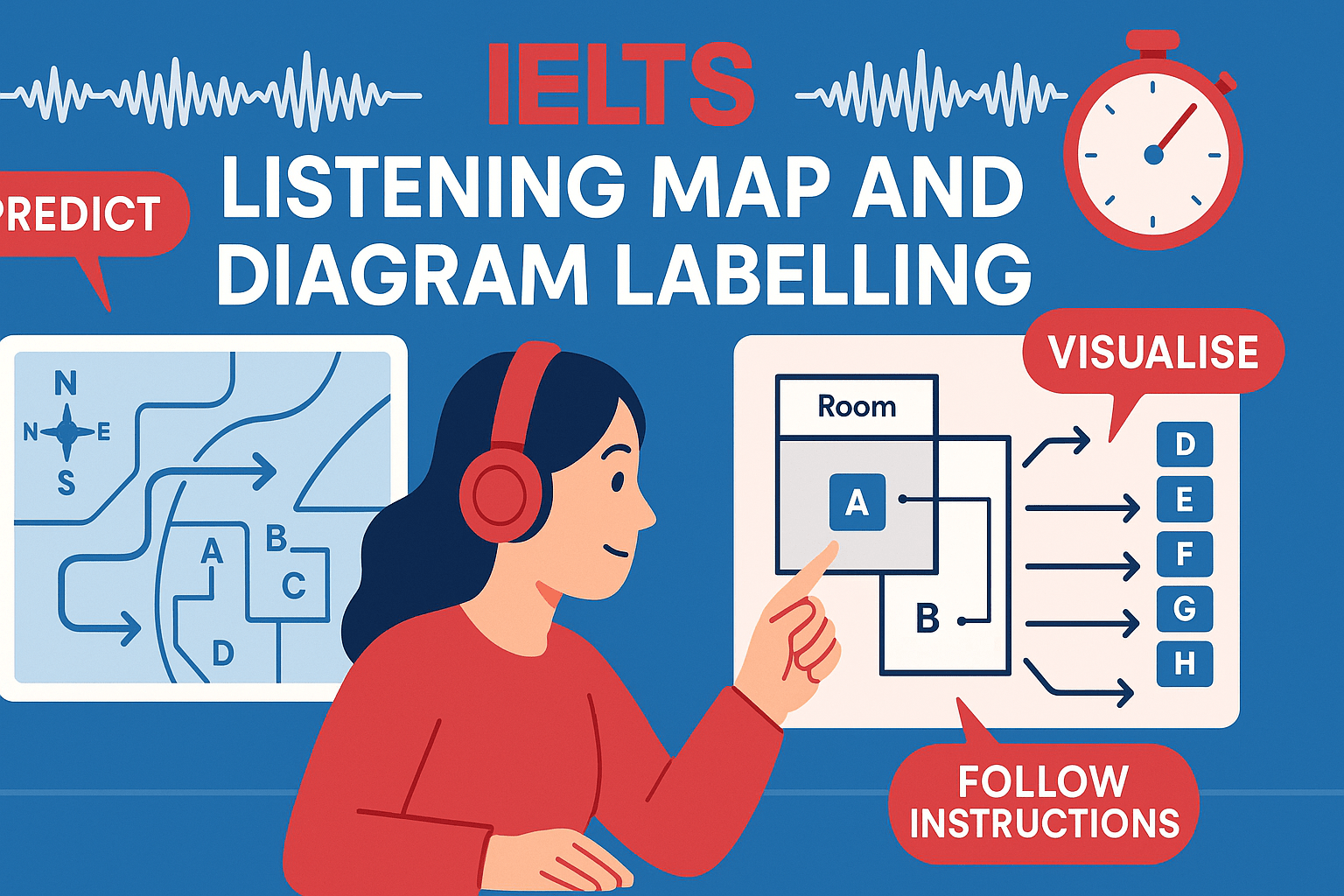- Why Your IELTS Listening Score Matters
- How the IELTS Listening Band Score Is Calculated
- Common Problems Students Face with Listening Scores
- What Raw Score Do You Need for Band 7, 8, or 9?
- Tips to Improve Your IELTS Listening Band Score
- Understanding the Score vs. Performance Gap
- Final Thoughts
- Frequently Asked Questions (FAQ)
As an international IELTS teacher who’s worked with learners across the globe, I know firsthand how confusing the IELTS Listening Band Score system can be. “Why did I get Band 6.5 when I thought I did well?”—this is one of the most common questions I hear from students. In this guide, I’ll break down exactly how your IELTS Listening Band Score is calculated and what you can do to improve it.
Why Your IELTS Listening Score Matters
Your IELTS Listening Band Score is more than just a number. It directly affects your university admissions, visa applications, and career opportunities. Whether you’re aiming for a Band 7 to meet immigration requirements or a Band 8.5 for academic excellence, knowing how the score is calculated helps you target your efforts more effectively.
I’ve seen brilliant students miss their goals by just 0.5 bands because they didn’t understand how raw scores convert into band scores. Let’s fix that.
How the IELTS Listening Band Score Is Calculated
The IELTS Listening section contains 40 questions. For each correct answer, you receive 1 mark. There is no negative marking for wrong answers. Once your raw score is tallied, it’s converted into a band score between 1 and 9, using a standardized conversion table.
Here’s a general idea of how raw scores convert to band scores:
| Raw Score (Correct Answers) | Band Score |
|---|---|
| 10 | Band 4 |
| 16 | Band 5 |
| 23 | Band 6 |
| 30 | Band 7 |
| 35 | Band 8 |
| 39–40 | Band 9 |
Note: These conversions are approximate and can vary slightly between test versions. You can refer to the official band descriptors on IELTS.org or through trusted providers like British Council and IDP IELTS.
Common Problems Students Face with Listening Scores
Over the years, I’ve worked with students who were shocked by their results—especially when they were confident they answered most questions correctly. Here are three typical scenarios I see:
- They didn’t account for spelling mistakes – A correct answer is only awarded if it’s spelled correctly.
- They misinterpreted plural/singular forms – Writing “apple” instead of “apples” can cost a point.
- They mismanaged time – Rushing in the last section often leads to simple mistakes.
All of these can bring your raw score down, and that directly affects your IELTS Listening Band Score.
If you’re not familiar with the test structure, check out this complete guide to the IELTS Listening Test Format.
What Raw Score Do You Need for Band 7, 8, or 9?
For most universities and visa authorities, a Band 7 or above is the golden standard. But what exactly does that mean in terms of correct answers?
- Band 7: Usually requires around 30–31 correct answers
- Band 8: Around 35–36 correct answers
- Band 9: At least 39 correct answers
Achieving this consistently requires not just practice, but strategy. That’s why I’ve created a full Band 7–9 Listening Strategy Guide to help you master every question type.
Tips to Improve Your IELTS Listening Band Score
Based on what I’ve seen work for students worldwide, here are my top tips:
1. Practice with Realistic Tests
Many students prepare with unofficial or low-quality materials. Always use reliable sources like Courseline IELTS Premium Courses or the official tests linked in the IELTS Listening Practice Test Library.
2. Analyse Your Mistakes by Type
Are you losing marks in multiple choice, matching, or sentence completion? Categorise your errors and attack them systematically.
3. Work on Accuracy Before Speed
Speed comes with time. Focus first on accuracy—make sure your spelling, grammar, and singular/plural forms are all correct.
4. Use Predictive Listening Techniques
Train yourself to predict the kind of word that will fill a blank—noun, verb, number, or adjective. This helps your brain listen more actively.
5. Improve Concentration
Listening for 30 minutes without losing focus is a skill. Try daily listening routines, such as TED Talks or BBC Radio, and write down key points.
Understanding the Score vs. Performance Gap
Sometimes, even students who understand English well underperform. Why? Because IELTS Listening is not just about comprehension. It’s about test technique, timing, familiarity with accents, and even the ability to manage pressure.
In my classes, students often improve by 1 full band after 3–4 weeks of structured practice—not because their English changed overnight, but because their approach did.
Final Thoughts
Understanding the IELTS Listening Band Score system is your first step toward mastering the test. Once you know how your raw score converts to a band score, you can set realistic goals, identify weak areas, and create a focused preparation plan. Whether you’re aiming for Band 7, 8, or 9, clarity in your scoring will help you train smarter—not harder.
And remember, a single mark can make a difference. I’ve seen students go from 29 (Band 6.5) to 30 (Band 7) just by correcting one small mistake.
For a comprehensive step-by-step learning plan, explore our IELTS Listening Premium Courses.
Frequently Asked Questions (FAQ)
Q1. How is the IELTS Listening Band Score calculated?
Your raw score (number of correct answers out of 40) is converted to a band score using a standard conversion chart. Each test version may vary slightly, but general thresholds (e.g., 30 correct = Band 7) remain consistent.
Q2. Is there negative marking in IELTS Listening?
No, you don’t lose marks for incorrect answers. Always attempt every question.
Q3. Can spelling mistakes lower my score?
Yes, even a single spelling or grammatical mistake can turn a correct answer into a wrong one.
Q4. How can I check my raw score before results are out?
After taking a practice test, count your correct answers. Then use a band conversion chart similar to the one above to estimate your IELTS Listening Band Score.
Q5. Do all question types carry equal marks?
Yes. Whether it’s multiple choice, map labelling, or sentence completion, each question is worth 1 mark.
Q6. Where can I find high-quality practice materials?
Use official sources like IELTS.org, British Council, and IDP. You can also explore curated IELTS Listening Practice Tests and premium Courseline IELTS courses.






One Response
As being a provider associated with Mom-EDU, I happen to be oftentimes required to answer how expectant folks could actually help them selves to create a more
suitable maternity. I usually point out the most up-to-date
research, which always shows exercise, expertise, combined with preparedness are probably the
most important strategies that people may do to support them selves have
a relatively good deal more favorable maternity along with a
really good birth outcome. This counsel is also pertinent to many people,
including the suggestion to experience %original _anchor_text% (or even massage therapy).